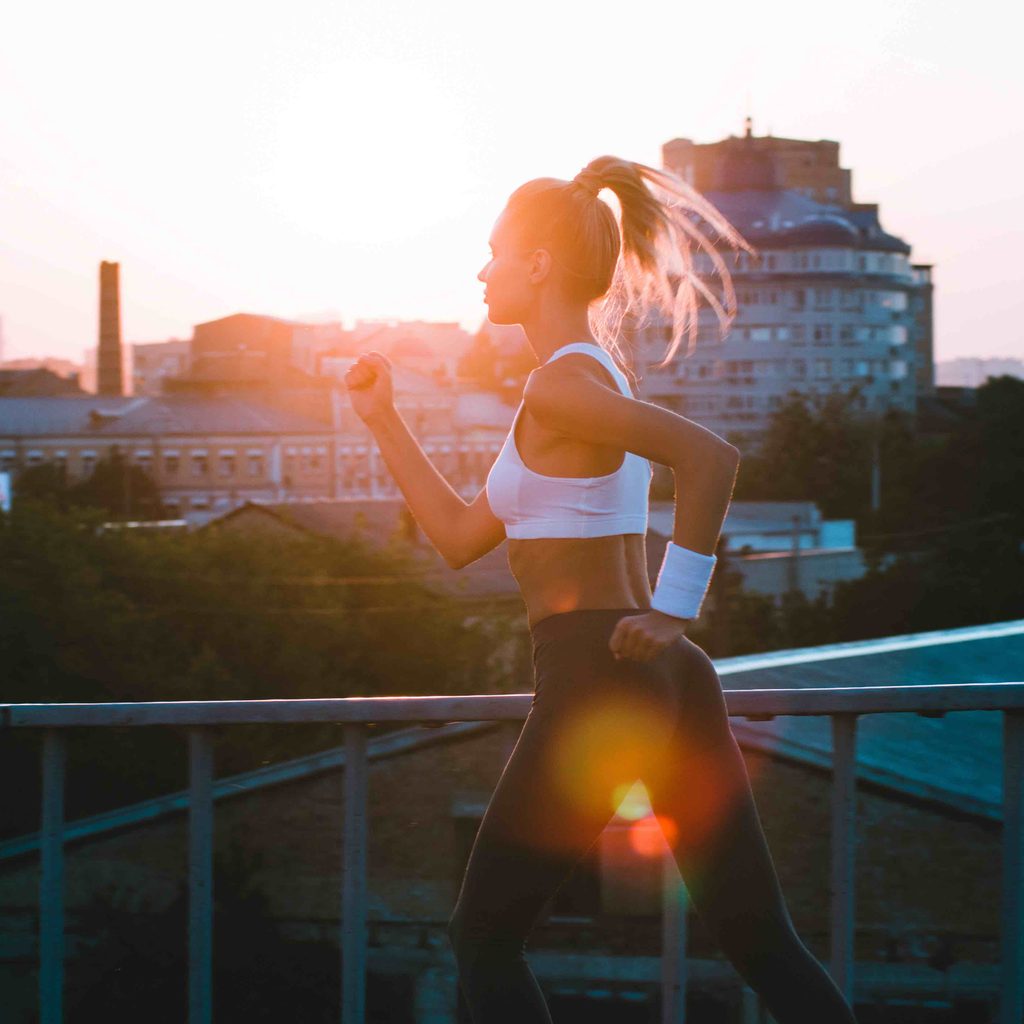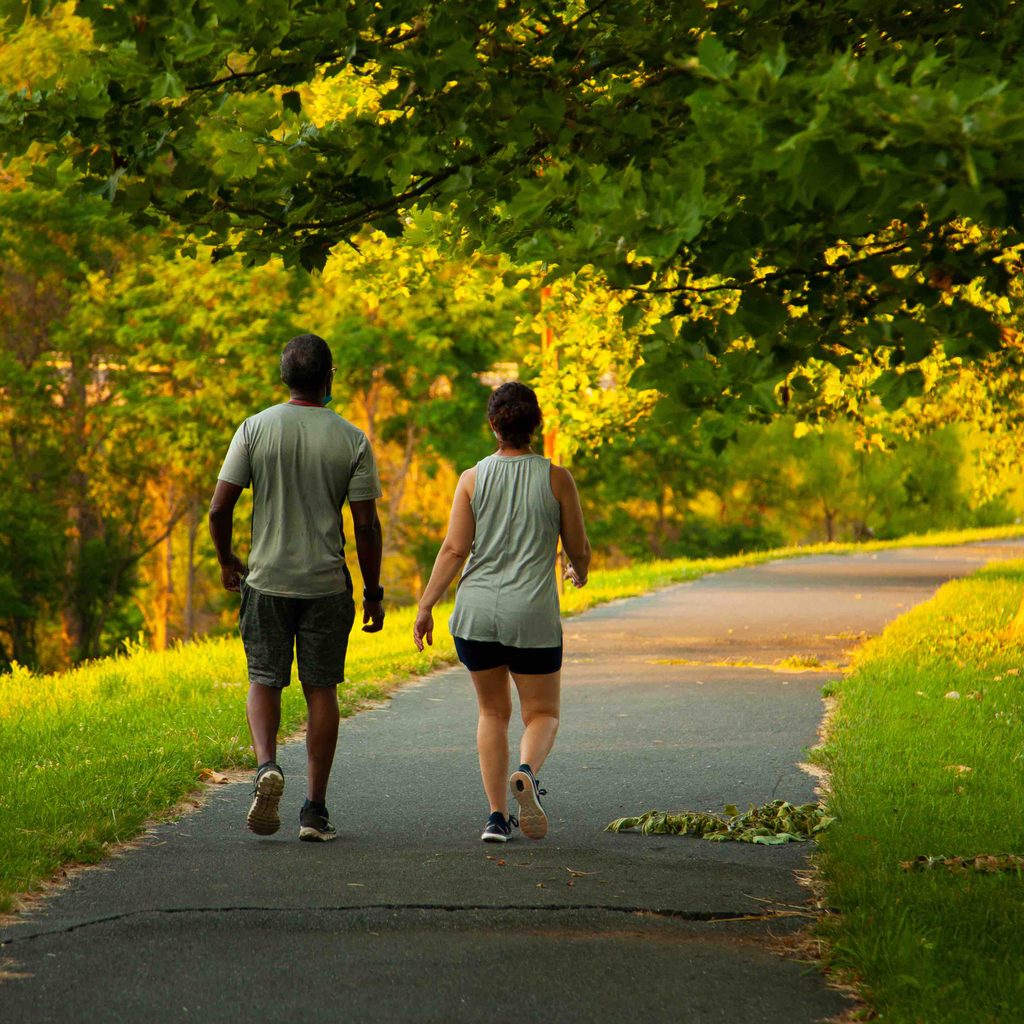
When do you like to exercise? Are you up with the sun? Do you work out over your lunch break? Do you hit the treadmill after tucking in the kids at night?
Any time you choose to exercise is a good time. Busy schedules and ever-changing motivation levels being what they are, it can be tricky to find the time. So if you’ve managed to carve out a space (or spaces) on your calendar for working out, more power to you.
Still, from a purely biological perspective, there are pros and cons to exercising at different times of the day. Is there a best time of day to work out? It turns out that plenty of science exists on the topic, even if it may not provide one single silver-bullet answer.
Let’s break it all down by morning, afternoon, and evening.
Morning
No matter how you slice it, working out in the morning is a strong option.
There’s substantial science to support those sunrise runs. A large analysis found that heart rates were more elevated among men who exercised in the morning, as was athletic performance and the overall capacity for exercise.
Another study found that we burn up to 20 percent more fat when we exercise on an empty stomach, which we’re more likely to have in the morning.
And yet another study showed that morning exercise can even help boost short-term memory.
Putting science aside, morning exercise also can be advantageous because it helps you get your workout in before the hecticness of the day overtakes you.

Afternoon
One of the hallmarks of scientific research is that findings are rarely definitive. The truth most often exists in the gray area, with evidence often pointing in different directions.
That’s good news for people who choose to exercise in the afternoon. Although there is a lot of data suggesting that mornings may be the best time to work out, there also is evidence suggesting that the optimum exercise window falls in the post-lunch hours.
For example, a 2020 study found that exercising in the afternoon resulted in greater exercise capacity and more body fat burned. It’s also when the body is most awake and body temperatures are at their highest, further suggesting a higher capacity for optimal performance.

Evening/Night
Of the three time categories, the evening hours might be the worst in terms of biology. However, it may not be as bad as scientists once suspected.
Historically, the main purported disadvantage to nighttime exercise has been the negative effect that exercise may have on your sleeping patterns. But there is evidence now that exercise doesn’t significantly affect sleep as long as you do it more than an hour before bedtime. There also is evidence indicating that exercising at night might actually help with your sleep.
However, there is one disadvantage that science can’t address. We’ve touched on the importance of schedules, and that may be a mark against evening exercise. Many evening calendars tend to fill up later in the day, and that can make it more difficult to stick to a routine. Evenings also are traditionally a good time for relaxation — another necessary part of any daily routine — with the workday (ideally) behind you. Although nighttime workouts can be perfectly effective, the realities of life may be an impediment.
As you can see, there are distinct advantages to exercising in every part of the day. While the science may suggest that the morning is the best time to work out, the afternoon and evening also have their own unique attributes.
Again, at the end of the day (pun intended), find the time that best fits your schedule and go with it. If you’re lucky enough to have flexibility in your daily routine, consider aligning your workout regimen with the time of day that brings the most health and fitness benefits. If all other things are equal, the morning appears to be the best time to get in your reps and steps.
BlissMark provides information regarding health, wellness, and beauty. The information within this article is not intended to be medical advice. Before starting any diet or exercise routine, consult your physician. If you don’t have a primary care physician, the United States Health & Human Services department has a free online tool that can help you locate a clinic in your area. We are not medical professionals, have not verified or vetted any programs, and in no way intend our content to be anything more than informative and inspiring.


